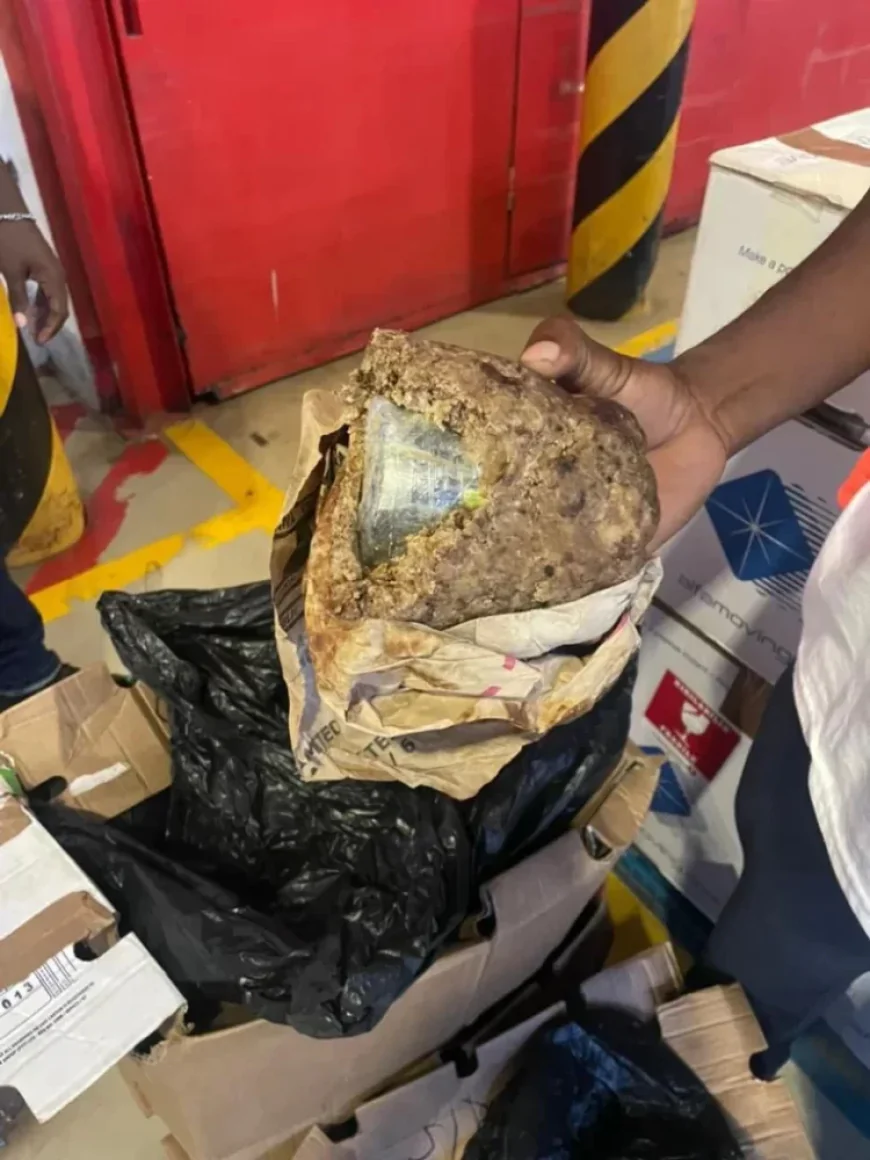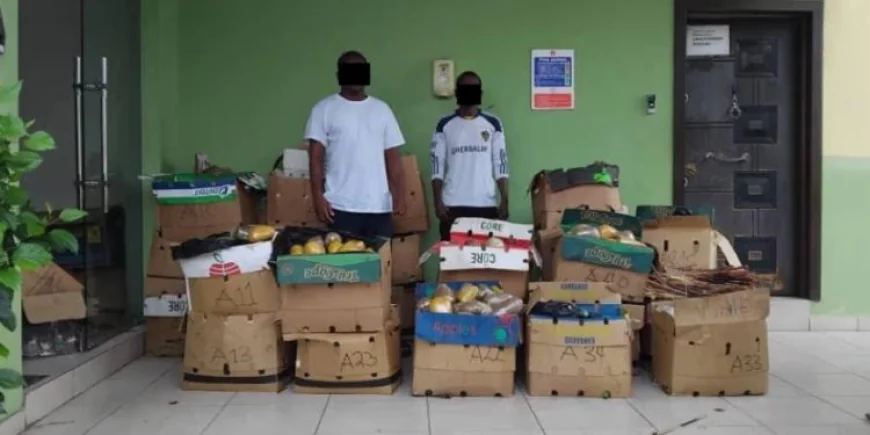NACOC Seizes Major Cannabis Shipment at Accra Airport, Two Suspects Declared Wanted
738 Parcels of Suspected Cannabis Concealed as Food Items Bound for UK Intercepted at Swissport Terminal

The Narcotics Control Commission (NACOC) has intercepted a major consignment of suspected cannabis at the Swissport Terminal at Kotoka International Airport, dealing a heavy blow to international drug trafficking networks operating through Ghana.
The seizure occurred on Friday, July 5, and involved 738 compressed parcels of suspected cannabis hidden inside 40 boxes deceitfully labelled as “assorted food items.” The illegal shipment was destined for the United Kingdom, reinforcing concerns about Ghana’s status as a transit hub for narcotics smuggling into Europe.

NACOC disclosed that the operation followed weeks of targeted intelligence and surveillance. Two individuals have been arrested and are assisting with investigations, while two key suspects — Lincoln Nii Okaija (b. March 27, 1979) and Kate Davidson a.k.a. “Esi” — remain at large. The Commission has declared both wanted and is appealing to the public for any information that could lead to their arrest.
■ Cannabis: A Growing Trafficking Threat
While cocaine often dominates drug-related headlines, NACOC says cannabis constitutes a significant share of seizures due to its widespread cultivation and transnational demand. According to the Commission’s 2022 report, Ghana saw an alarming increase in drug seizures, rising from 15,458 kg in 2021 to 59,900 kg the following year.
The most recent bust underlines Ghana’s strategic role in the global drug trade and the evolving tactics of smugglers who often disguise narcotics in everyday cargo.
■ Akyem Oda, Akroso Raids: Local Crackdown Intensifies
In a related development, NACOC carried out another successful operation on June 24 in the Eastern Region towns of Akyem Oda and Akroso. The raid led to the arrest of 14 individuals for possession and distribution of illegal drugs.
As part of the operation, three licensed chemical stores were shut down for selling unregistered and controlled substances, including cannabis and codeine-based syrups like “red”, which are commonly misused in Ghanaian communities.
■ Call for Vigilance and Public Support
Under Ghana’s Narcotic Drugs (Control, Enforcement and Sanctions) Act, 1990 (PNDCL 236), narcotics trafficking without legal authorization carries a minimum sentence of 10 years imprisonment.
NACOC has reaffirmed its commitment to disrupting drug syndicates, both local and international, and urged the public to remain alert.
“Community vigilance is critical to safeguarding our public health and national security,” the Commission said in a statement.
Ghana continues to work closely with international partners, particularly the United Kingdom, to boost intelligence sharing, joint enforcement operations, and anti-trafficking initiatives aimed at breaking the chain of illicit drug trade in the region.


